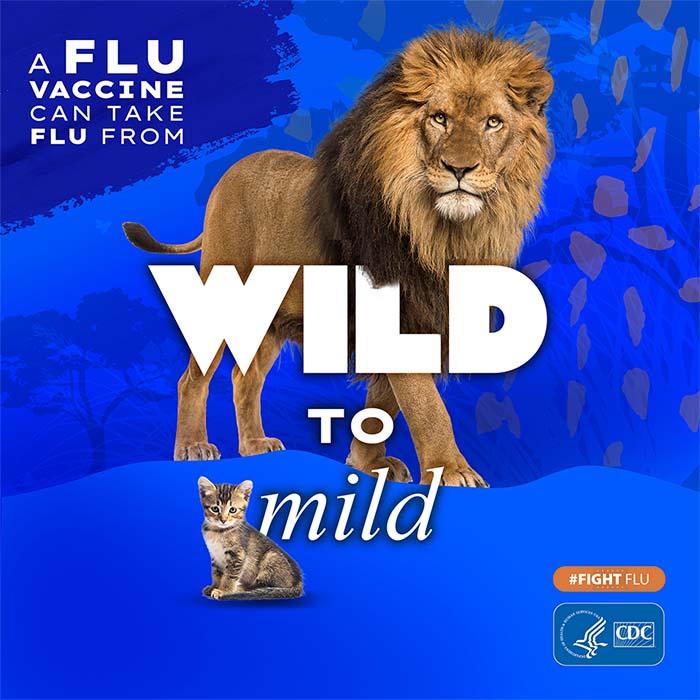Adjuvanted Flu Vaccine
Flu Vaccine with Adjuvant, brand names Fluad and Fluad Quadrivalent.
- What is Fluad Quadrivalent?
- What is MF59?
- Why are adjuvants added to flu vaccines?
- Is Fluad Quadrivalent approved in other countries, besides the U.S.?
- Who can receive Fluad Quadrivalent?
- Are there benefits of Fluad Quadrivalent compared to standard-dose flu vaccines without adjuvant for adults 65 years and older?
- Are any of the available flu vaccines recommended over others
- What if a preferentially recommended flu vaccine is not available?
- How safe is Fluad Quadrivalent?
- Where can I find more information about Fluad?
- What other flu vaccines are available for people 65 years and older?
- Why is there a need for flu vaccines designed specifically for people 65 years and older
This page provides information on Fluad Quadrivalent influenza vaccines. More information about Fluad and Fluad Quadrivalent is available on the Food and Drug Administration (FDA) web site.
What is Fluad Quadrivalent?
Fluad Quadrivalent is a standard-dose, inactivated influenza (flu) vaccine, manufactured by Seqirus that contains an adjuvant.
Fluad Quadrivalent is manufactured using an egg-based process (like most flu vaccines) and includes an adjuvant called MF59. An adjuvant is an ingredient added to a vaccine that helps create a stronger immune response to vaccination. Fluad Quadrivalent is approved for use among people 65 years and older, who often have a lower protective immune response after flu vaccination compared to younger people.
What is MF59?
MF59 is an oil-in-water emulsion of squalene oil. Squalene, a naturally occurring substance found in humans, animals, and plants, is highly purified for the vaccine manufacturing process.
Why are adjuvants added to flu vaccines?
An adjuvant is an ingredient of some vaccines that helps promote a better immune response. Adjuvants also can reduce the amount of virus needed for production of a vaccine, which can allow for greater supplies of vaccine to be manufactured.
Is Fluad Quadrivalent approved in other countries, besides the U.S.?
Fluad was initially approved in Italy in 1997, and at the time of its U.S. approval in November 2015, had been licensed in 38 countries, including Canada and 15 European countries. Fluad Quadrivalent was approved in the United States in 2020; it has been available since the 2020-2021 flu season.
Who can receive Fluad Quadrivalent?
In the United States, Fluad Quadrivalent is licensed only for people 65 years and older. FLUAD Quadrivalent should not be given to people with a history of severe allergic reaction to any flu vaccine or to vaccine ingredients other than eggs. Information about vaccine ingredients is located in package inserts from each manufacturer.
Are there benefits of Fluad Quadrivalent compared to standard-dose flu vaccines without adjuvant for adults 65 years and older?
Studies that have tested trivalent Fluad’s (a previously available, 3-component MF59-adjuvanted vaccine) ability to generate an immune response against flu viruses (immunogenicity) found that antibody levels were comparable to levels induced by a standard-dose, egg-based vaccine without adjuvant. Recent observational studies among Medicare beneficiaries 65 years and older found that trivalent Fluad provided greater protection against flu-related hospitalizations and emergency department visits than unadjuvanted standard-dose, egg-based quadrivalent flu vaccine. Another study published in Clinical Infectious Diseases among people aged 65 years and older residing in nursing homes noted that use of Fluad was associated with a lower risk of hospitalization for pneumonia and influenza compared with standard-dose influenza vaccine. Data comparing the effectiveness of Fluad Quadrivalent with standard-dose unadjuvanted inactivated vaccines are not yet available. If you have questions about which vaccine is best for you, talk to your doctor or other health care professional.
Yes, for some people. There are three influenza vaccines that are preferentially recommended for people 65 years and older. These are Fluzone High-Dose Quadrivalent vaccine Flublok Quadrivalent recombinant Influenza vaccinea nd Fluad Quadrivalent adjuvanted influenza vaccine. This recommendation was based on a review of available studies which suggests that, in this age group, these vaccines are potentially more effective than standard dose unadjuvanted influenza vaccines. There is no preferential recommendation for people younger than 65 years.
If none of the three influenza vaccines preferentially recommended for people 65 years and older is available at the time of administration, people in this age group should get any other age-appropriate influenza vaccine instead.
How safe is Fluad Quadrivalent?
Some adverse events (which are also reported after regular flu vaccines) were reported more frequently after vaccination with Fluad than with unadjuvanted flu vaccines. The most common adverse events experienced during clinical studies were mild to moderate and were temporary, and included pain, redness at the injection site, headache, muscle aches, and malaise. In a study comparing Fluad Quadrivalent with trivalent Fluad, some of these events were slightly more common with the quadrivalent vaccine, but most were mild and resolved within a few days.
Where can I find more information about Fluad?
More information about Fluad Quadrivalent is available on the Food and Drug Administration (FDA) web site.
What other flu vaccines are available for people 65 years and older?
This table lists the vaccines available this season and their indications: TABLE. Influenza vaccines — United States, 2022-23 influenza season
Why is there a need for flu vaccines designed specifically for people 65 years and older?
People 65 years and older are at higher risk for flu-related severe illness and death. CDC research indicates that people 65 years and older account for 70 to 85 percent of flu-related deaths and 50 to 70 percent of flu-related hospitalizations each flu season. Older adults can have lower protective immune responses after flu vaccination compared to healthy young people. Lower immune responses may lead to lower vaccine effectiveness (i.e., a measure of how well the flu vaccine protects). Given the higher risk of severe flu illness and lower protective immune response after vaccination among older adults, substantial research and development have produced new flu vaccines intended to provide better protection for people in this age group.
